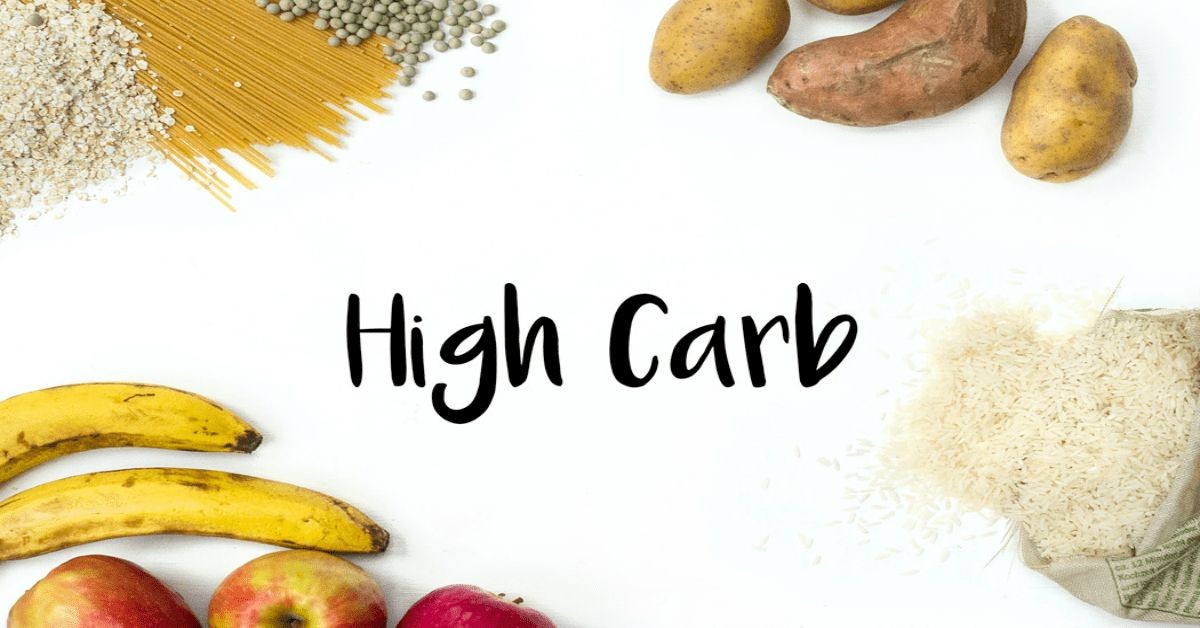
Contents
High Carb Foods: 13 Healthy Foods To Eat and 3 To Avoid
Not all carbs are equal. Healthy high carb foods include potatoes, barley, and lentils. Avoid sugary drinks, syrups, candy, and refined starches.
A healthy diet requires protein, fats, and carbohydrates. When consumed in appropriate amounts, these three components contribute to overall health.
Foods vary in carb content. Some contain sugar-based carbs, while others provide carbs from whole grains that promote better health.
There are three types of carbs:
- Starch: Examples include potatoes, grains, and bread, all from plant-based sources.
- Sugar: Found in natural sources like fruit or refined foods like soda.
- Fiber: Not absorbed by the body, fiber aids digestion.
Carb requirements depend on calorie needs and activity levels. The Dietary Guidelines for Americans suggest that 45% to 65% of daily calories should come from carbs.
For a person consuming 2,000 calories a day, that’s 900 to 1,200 carb calories.
Pregnant/nursing individuals, children, and those with higher activity levels may have different needs. Consult a doctor or dietician for personalized advice.
A meal plan or guidelines from a dietician can simplify everyday nutrition.
Healthy high carb foods
Consuming quality carbs, protein, and fats benefits long-term health and maintains a healthy weight.
Opting for healthy foods may require effort at first, but as you gain energy, it becomes easier to adjust your activities accordingly.
Some of these foods may already be part of your diet or can be prepared to suit your taste.
Potatoes: Versatile and nutritious, try baked, mashed, boiled, or lightly oiled and baked for a healthier alternative to fried potatoes.
Barley: A heart-healthy grain, hulled or pearled, can be added to salads or used as a rice substitute.
Lentils: High in protein, fiber, iron, and folate, they make a great meat substitute and can be used in sauces, soups, curries, and salads.
Beans: With over 10 types available, beans are rich in fiber, folate, protein, and potassium. Use them in dips, soups, stews, chilis, salads, and pastas.
Quinoa: A complete protein, quinoa can replace grains in various dishes, like breakfast cereal or rice.
Forbidden rice: Black in color with a chewy, nutty texture, it contains antioxidants found in blackberries and blueberries.
Brown rice: Chewier and nuttier than white rice, it can be eaten alone or added to salads or soups.
Bulgur: A wheat product, it can be used in Mediterranean cooking or as a binder. Quick and easy to prepare with a variety of textures.
Oats: Known for their ability to lower cholesterol, oats can be eaten as cereal or substituted for flour in baking.
Whole grain bread: Opt for whole grain bread over white bread for added nutrients and longer satiety.
Bananas: Despite their reputation, bananas offer valuable nutrients like vitamins B and C, fiber, and minerals.
Chickpeas: A legume rich in protein, fiber, calcium, iron, and magnesium, use them in savory dishes or as a base for hummus.
Buckwheat: Gluten-free and high in fiber, it can be cooked or ground into flour for noodles and baked goods.
Introducing new foods can take time, but variety prevents boredom and reduces the urge for unhealthy snacks. Consult a doctor before making changes to your diet.
QUESTION
3 types of foods to avoid
Your future health depends on your diet. Opt for healthy, unprocessed foods to ensure a long and healthy life.
Sugary drinks, syrups, candy, and refined starches are common but should be limited or treated as occasional indulgences.
Sugary drinks: High in sugar, they promote obesity, diabetes, heart disease, and poor bone health.
Syrups and candy: Loaded with high-fructose corn syrup, they promote poor health, obesity, and dental issues.
Refined starches: These lack nutritional value and cause blood sugar spikes, leading to diabetes, high blood pressure, and mood changes.
Sources: Cleveland Clinic, Harvard Health Publishing, Harvard T.H. Chan School of Public Health, Help Guide, Mayo Clinic, NHS, North Dakota State University, University of Illinois, USDA.


